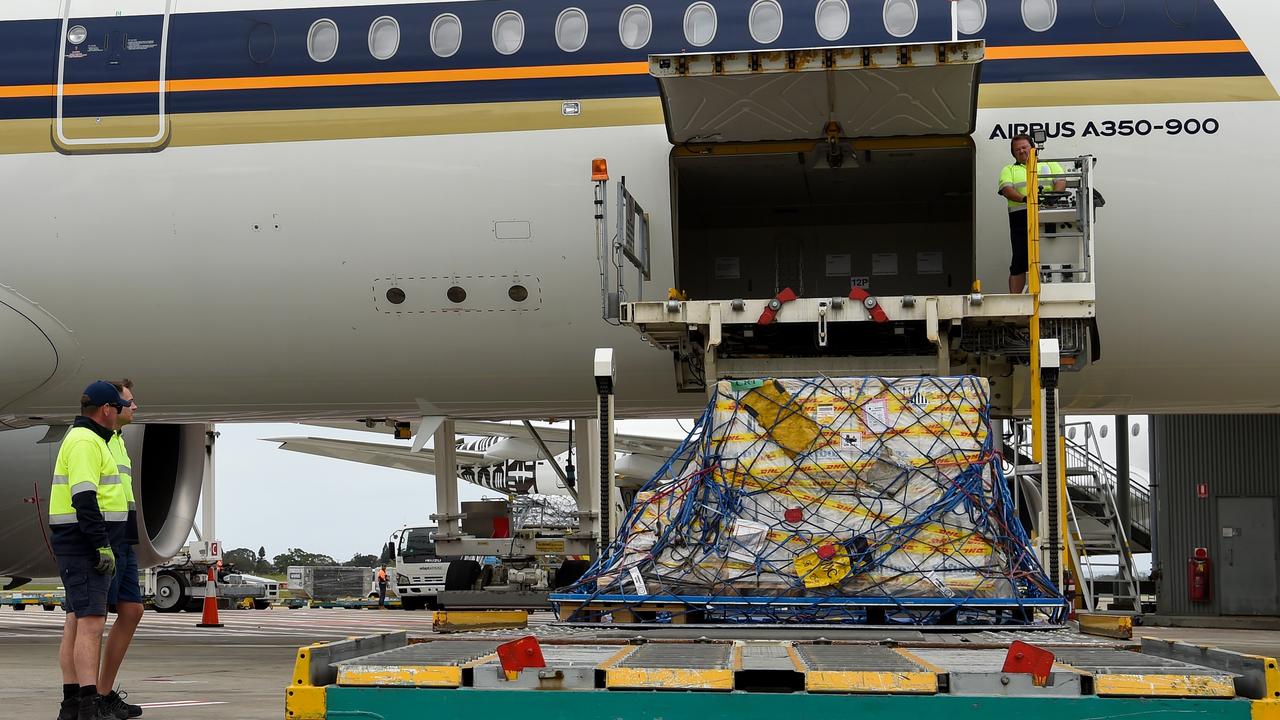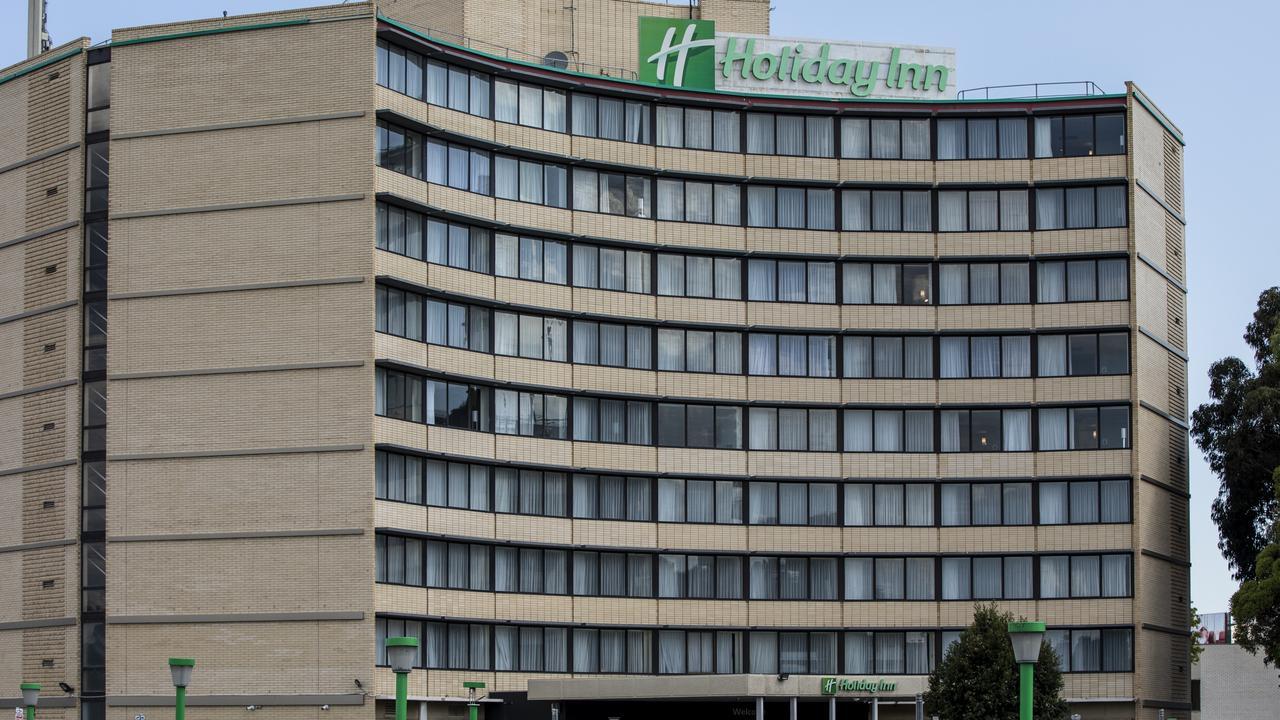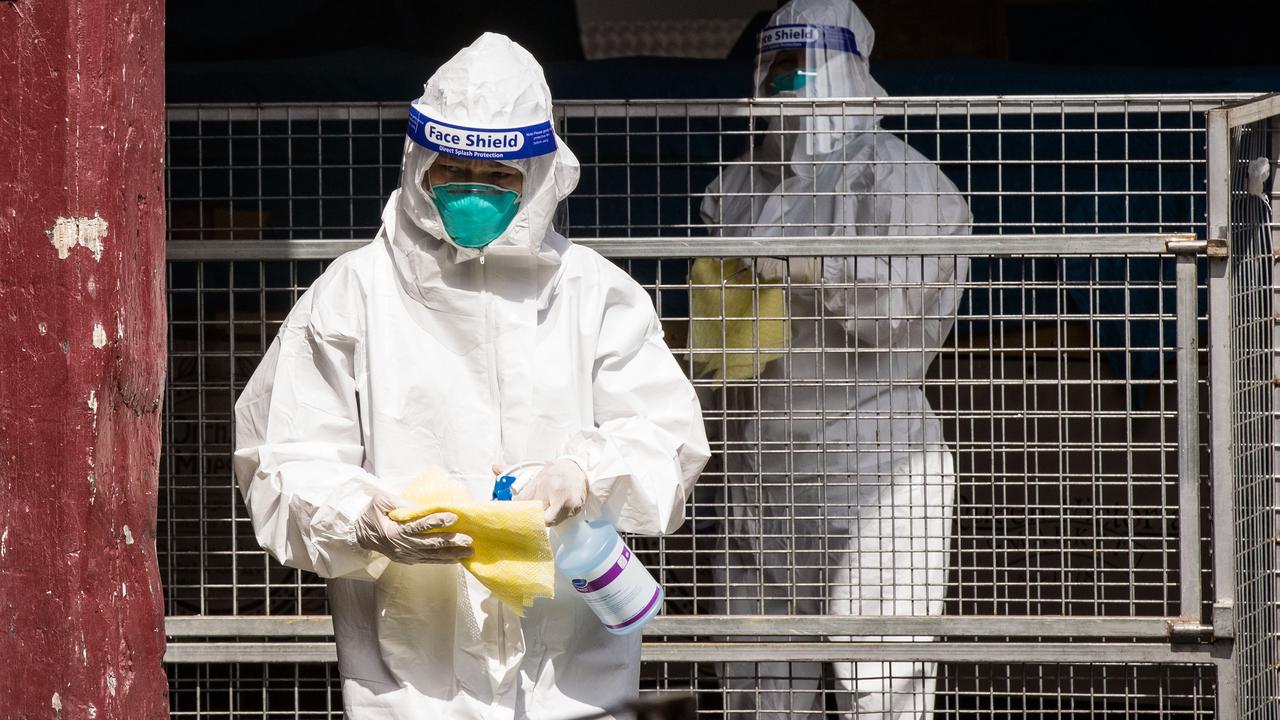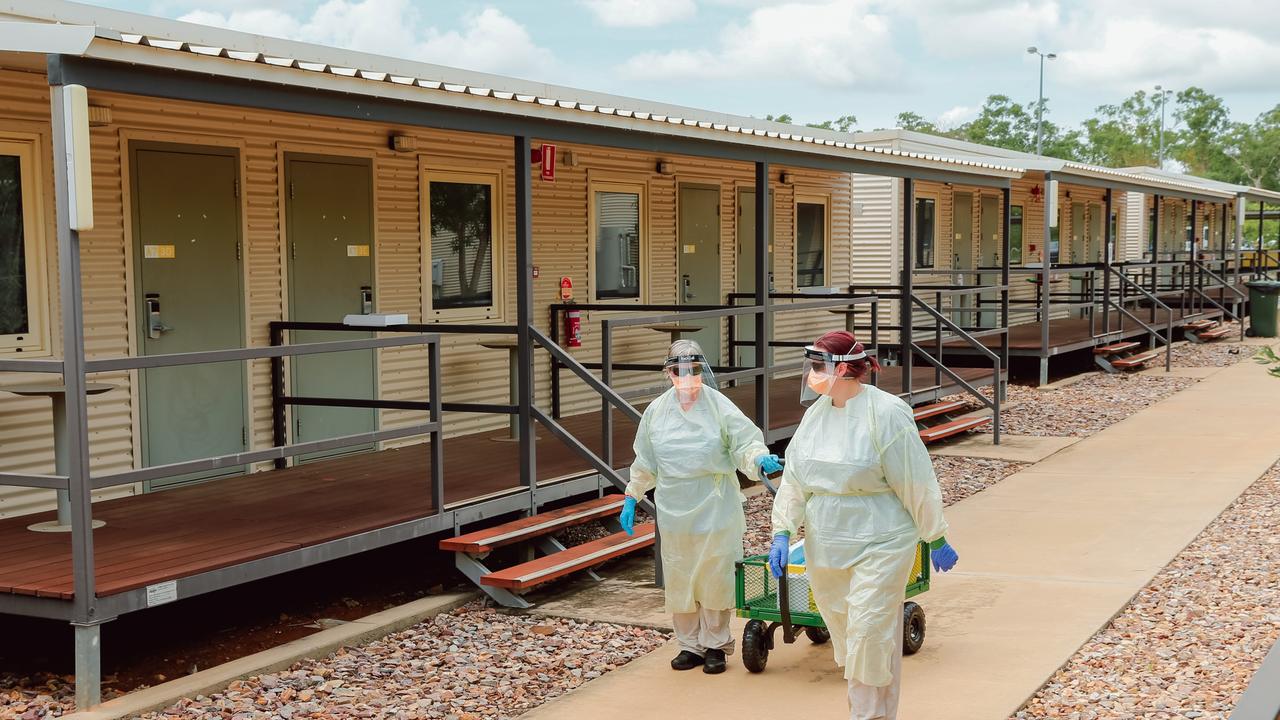COVID-19 vaccine rollout comes with ‘escape mutation’ risk if hotel quarantine program fails
Quarantine failures like the latest in Victoria, which has plunged the state into lockdown, could see a local mutation of COVID-19 develop.

Australia must reform its hotel quarantine program as the country cannot afford to have the coronavirus circulating within the community as it rolls out vaccines, one expert says.
University of New South Wales Professor Mary-Louise McLaws, who is a member of a World Health Organisation advisory panel on COVID-19, told news.com.au that leaks from hotel quarantine still appeared to be an issue in most states, and falling back on contact tracing was not enough.
“I think there is still an issue with hotel quarantine, almost every state has had leaks: South Australia, Western Australia, NSW and Queensland, not just Victoria,” Prof McLaws said.
In the past week Victoria has been feeling the heat over its hotel quarantine program due to its Holiday Inn cluster that saw the state go into a five-day lockdown.
Premier Daniel Andrews announced on Tuesday that Victoria is “actively pursuing” the construction of a purpose-built quarantine centre potentially near Avalon or Melbourne airports.
The facility will be a cabin-style, village-style environment, based on the Howard Springs model in the Northern Territory. A delegation will be sent to Howard Springs to see how it is set-up.
Mr Andrews said it would serve to replace, although maybe not entirely, the work of inner city hotels.
“I think there is a compelling argument for this, not just in Melbourne, not just in the Northern Territory,” he said.
Prof McLaws said all quarantine programs across Australia needed to be scrutinised.
“If the virus bolts, it’s too late,” she said.
RELATED: WHO’s alarming coronavirus discovery

“We’ve got to stop the leaking via staff because we can’t afford to have any circulating virus, particularly the B117 variant (UK strain) while we try to roll out the vaccine.”
Prof McLaws said if the coronavirus was circulating while vaccines were being rolled out in Australia, it could lead to “escape mutation”.
Both the Pfizer vaccine — the first doses of which arrived in Australia on Monday — and the AstraZeneca vaccine require two doses to provide significant protection against the coronavirus.
But Prof McLaws said that because it took a while for first dose to work it was possible someone could be infected by the virus before their second dose, and this could see the virus mutate to get around the vaccine’s antibody response.
“If you have somebody who hasn’t developed a really good immune response to their first dose of the vaccine, the virus will see the antibodies and learn how to respond,” Prof McLaws said.
“We don’t want that to happen.”
Prof McLaws said that countries like the United States and United Kingdom where there were high levels of COVID-19 circulating may eventually find the vaccines do not work as well as they had hoped.
“The point is, you want to be highly precautionary and give every Australia the best chance to develop a complete protective antibody response without the virus infecting them or developing resistance to the vaccine,” she said.
Prof McLaws said the US and UK had no option but to roll out the vaccines, despite high levels of infection in the community, as their health services were overrun and death rates were high.
“They can’t wait to get the virus under control,” she said.
However, she said she hoped everyone in those countries was being educated to help them avoid getting infected between doses.
RELATED: Leigh Sales grills Daniel Andrews on COVID response

CHANGES NEED TO QUARANTINE
Prof McLaws, who has called for a national approach to hotel quarantine, said numerous leaks of the virus from hotel quarantine showed Australia needed to change its program.
“Myself and others have been saying for nine, 10 months now that the quarantine program was a very good emergency program but should not have been designed as a continuing program,” she said.
Prof McLaws said that moving forward, each hotel should provide an airconditioning report from an engineer that shows what the airflow change is in each guest room and corridor.
If there is not complete replacement of fresh air in these areas at least 10 times an hour, then Prof McLaws said authorities should consider restricting guests to just one side of the corridor and introducing almost daily coronavirus testing.
She believes rapid antigen tests should be introduced on top of the polymerase chain reaction (PCR) tests that screen for COVID-19 using nasopharyngeal swab samples.
Antigen test results are available in 10 to 20 minutes, unlike the PCR tests, which take a lot longer and are more invasive.
Prof McLaws said antigen tests approved in Australia ranged in sensitivity between 88 to 99 per cent, and also had fewer false positives than PCR tests.
“So you are preventing the virus from bolting,” she said.
She said there could also be a need for CCTV monitoring in every corridor to quickly identify potential breaches by staff so they could be stopped from returning home while potentially infected, or undergo testing.
“There should be continuous cleaning and travellers should not be allowed to come to the door without being masked up,” she said.
Certain staff members should be designated “champions” to watch others and make sure they don’t accidentally breach infection control procedures.
“Someone might not realise they have pulled their mask down below their nose or touched their eye, which is why they should all be wearing face shields as well,” Prof McLaws said.
“Champions remind people in situ what not to do,” she said. “Simple things like that, will keep them from occupationally acquired infections.”

NEW FACILITIES MAY NEED TO BE BUILT
If these measures are still not preventing leakage of the virus from hotels then putting returned travellers in facilities like the Howard Springs, a former workers’ camp 29 kilometres out of Darwin that has been converted to take returned travellers, should be considered.
So far, the site has quarantined more than 3700 Australians without a leak. Each returned traveller has their own cabin and balcony, which provides plenty of fresh air.
Royal Darwin Hospital is about 30 minutes’ drive away so anyone diagnosed with the coronavirus can get medical help.
However, the capacity of Howard Springs is limited and it can only accommodate about 850 people per fortnight, while NSW oversees 430 people per day in its hotel quarantine system.
The Federal Government is currently looking at options for other facilities in locations such as Toowoomba in Queensland.
RELATED: Push to move quarantine out of cities

Prof McLaws said if more facilities like Howard Springs were opened, they could be used to house low-risk travellers.
She said these quarantine facilities should be located in areas close into airports so there is less opportunity for the virus to spread through transport.
“Somewhere where it’s open and less close to built environments because this virus loves closed, built environments and loves poor airflow change and loves people forgetting about it and accidentally touching their mask or touching their eyes,” she said.
Those who are found to be infected with the coronavirus could then be moved to medi-hotels staffed with experienced healthcare workers.
“You wouldn’t put newly trained adults in a medi-hotel, it’s too much of an ask,” Prof McLaws said.
Prime Minister Scott Morrison has previously defended Australia’s hotel quarantine program and said it remained the most effective way to deliver the scale of services Australia needed.
“The alternative is not that clear to me,” he told reporters earlier this month.
“This idea that you can replace the hotel quarantine system, bring Australians back home, manage your health agenda effectively through some other mechanism, I think we have to keep a sense of realism about this and a sense of proportion.
“211,500 people have come back, we’ve had a handful of cases that haven’t been completely contained within that.”
charis.chang@news.com.au | @charischang2




